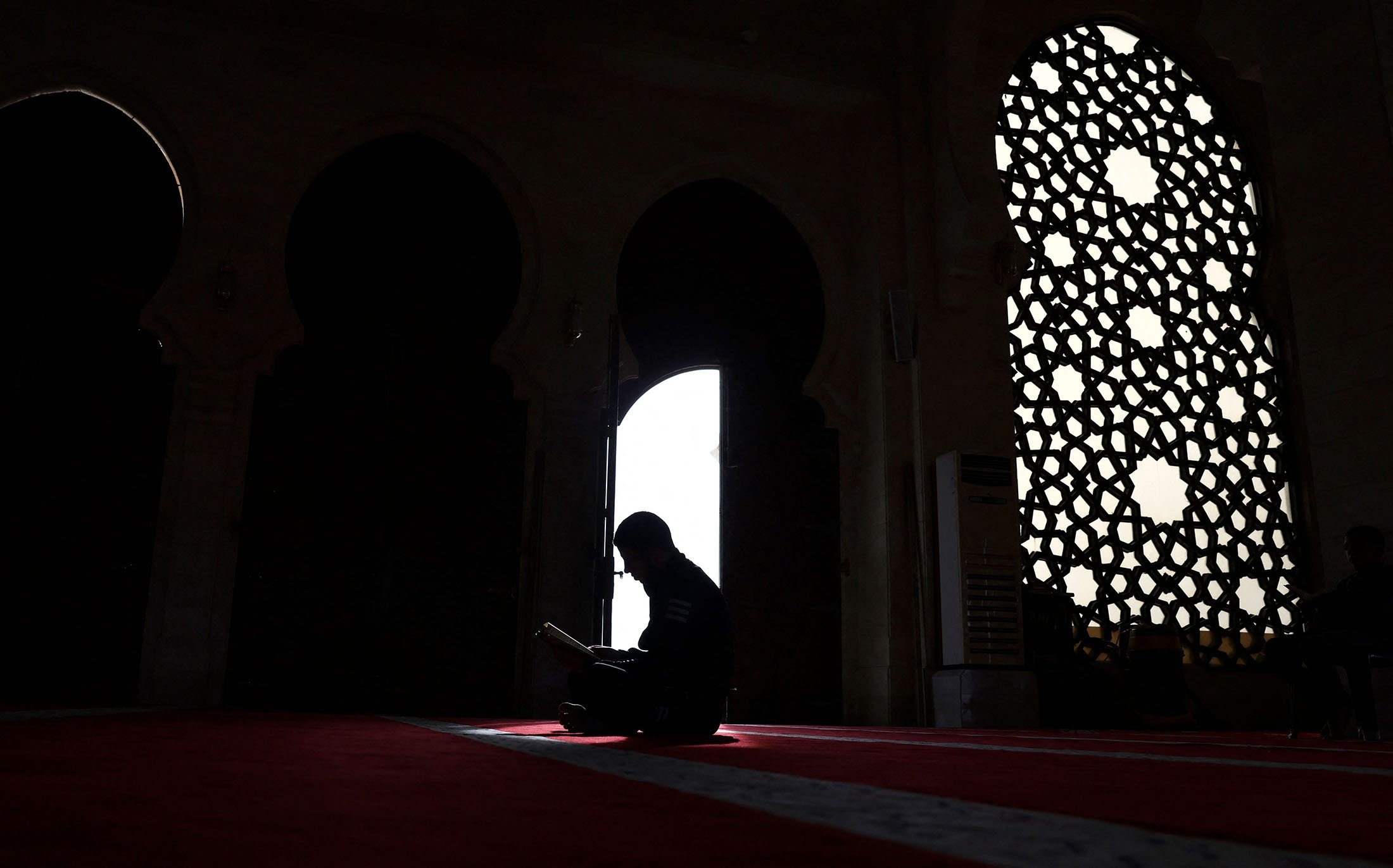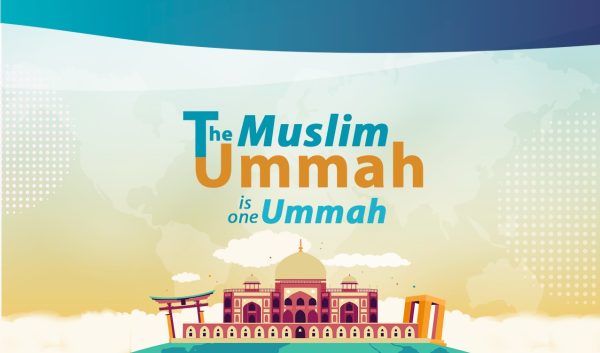The month of Ramadan brings with it a season of obedience that facilitates the achievement of higher ranks in the Eyes of Allah (عَزَّوَجَلَّ), earn greater rewards and form a stronger bond with our Creator.
As the blessed month of Ramadan began, the Messenger of Allah ﷺ used to comprehensively prepare himself for worship, secluding himself from worldly affairs and devoting completely towards worship of the One and Only Creator.
Similar was the routine of the companions of the Prophet (Sahaba – RadiAllahu Anhuma) and the pious predecessors that followed them.
Imam Maa’la bin AlFazal (Rahimullah) writes about our pious predecessors, “They used to pray to Allah (عَزَّوَجَلَّ) six months in advance for being able to live through to the holy month of Ramadan and used to spend the remaining six months praying for the acceptance of all their worship and good deeds done during Ramadan”.
Imam Yahya bin Katheer (Rahimullah) says that the pious predecessors used to make the following dua:
اللهم سلِّمني إلى رمضان وسَلّم لي رمضان، وتسلَّمه مني متقبّلا
“O Allah! Keep us alive until Ramadan and Make Ramadan a month of peace for us and accept it from us.”
Our pious predecessors used to eagerly and anxiously await the arrival of the month of Ramadan so that they were able to perform exceedingly good deeds and excel and improve their relationship with Allah (عَزَّوَجَلَّ).
The month of Ramadan is the season of generosity and mercy. In the month of Ramadan, the relationship of the Messenger of Allah ﷺ with his Creator was that of obedience and submissiveness, while his relationship with his neighbors, the poor and the downtrodden was that of a generous king.
Abdullah ibn Abbas (RadiAllahu Anhu) narrated that the,
“The Prophet ﷺ was the most generous of the people and he was even more generous during the month of Ramadan when Jibrael (Alaihissalam) visited him. Jibrael (Alaihissalam) would meet with him every night of Ramadan until the end of the month and the Prophet ﷺ would recite the Qur’an to Jibrael (Alaihissalam). When Jibrael (Alaihissalam) met him, he would be more generous than a swift wind bringing rain
(Bukhari: 1902)
The Prophet ﷺ did not limit these acts of charity and kindness to himself, rather he ﷺ preached the same to his ummah:
قِيلَ: يَا رَسُولَ الله :اَيُّ الصَّدَقَةِ أَفْضَلُ؟ قَالَ: صَدَقَةٌ فِي رَمَضَانَ
“The Messenger of Allah ﷺ was asked: Which charity is the best? He ﷺ replied: The charity that you make in the month of Ramadan.”
(Tirmizi: 663)
Imam Shafi’i (Rahimullah) said, “Most generous is that person who follows in the footsteps of the Messenger of Allah by giving charity in Ramadan and fulfilling the needs of the people in a good manner thus providing them an opportunity to fulfill their fasts and worship.”
Prostrating soldiers of Allah (عَزَّوَجَلَّ) during their night prayer in Ramadan:
The month of Ramadan was a season of blessings and worship in the eyes of the pious predecessors, in which they strived to strengthen their bond with Allah (عَزَّوَجَلَّ) and have their names written amongst the submissive and obedient servants of Allah (عَزَّوَجَلَّ). They used to seclude themselves from the worldly affairs, and their homes and masaajid (mosques) used to resonate with the recitation of the Quran. They also made special provisions for taraweeh prayers during the night.
Umar ibn Khattab (RadiAllahu Anhu) used to get the masaajid illuminated during the month of Ramadan and made arrangements to ensure that the sunnah of the Messenger ﷺ of initiating Qur’an recitation through taraweeh prayers was followed. Once, Ali (RadiAllau Anhu) went out on the first night of Ramadan and saw that the masaajid were all lit up and the Qur’an was being recited; he said, “O Umar! May Allah illuminate your grave just as you have illuminated Allah’s massajid with the Quran”
(Hayat us Sahabah by Kandhalwi: 4/202).
Abdullah ibn abi Bakr (RadiAllau Anhu) said, “I heard my father saying that, when we used to get done with the night’s prayer during the Month of Ramadan, we used to make haste in consuming suhoor because of the fear of the time of Fajr from entering upon us.” (Mu’atta by Imam Malik).
The glorious state of the night prayer of the third Caliph Usman (RadiAllau Anhu) was such that Ibn Umar (RadiAllau Anhu) recited the following verse of the Qur’an and then said that the traits mentioned in this verse are that of Usman (RadiAllau Anhu):
أَمَّنْ هُوَ قَانِتٌ آنَاءَ اللَّيْلِ سَاجِدًا وَقَائِمًا يَحْذَرُ الْآخِرَةَ وَيَرْجُو رَحْمَةَ رَبِّه
“Is one who is obedient to Allâh, prostrating himself or standing (in prayer) during the hours of the night, fearing the Hereafter and hoping for the Mercy of his Lord (like one who disbelieves)?
[ Az-Zumar: 09]
Imam Thabith Albanani (Rahimullah) stated that, “A prayerful individual cannot be labeled as such until these two characteristics are found in him, first that he stays up at night in worship and second that he fasts during the day, because both of these are from his blood and body.”
Imam Hasan Basri (Rahimullah) states that, “I do not find any other worship better than the prayer performed late in the night.”
Righteous people and the recitation of the Qur’an
The month of Ramadan has a special connection to the Quran, as Allah (عَزَّوَجَلَّ) says:
شَهْرُ رَمَضَانَ الَّذِيْٓ أُنْزِلَ فِيْهِ الْقُرْآنُ هُدًى لِّلنَّاسِ وَبَيِّنَاتٍ مِّنَ الْهُدٰى وَالْفُرْقَان
“The month of Ramadan [is that] in which was revealed the Qur’an, a guidance for the people and clear proofs of guidance and criterion.”
[Al-Baqara:185]
It is said about Imam Maalik (Rahimullah) that in the month of Ramadan he would discontinue teaching classes, gatherings of knowledge and sessions of giving rulings on points of Islamic law and rather completely attach himself to the Quran and used to say that,
“ھذا شَھرُ القرآن”,
“This is the month of the Qur’an.”
It is said about Imam Qatadah (Rahimullah) that he used to recite the complete Quran in seven nights and when Ramadan arrived, he used to complete reciting it in three nights.
Imam Zahri(Rahimullah) said:
“When the month of Ramadan begins, the only emphasis of an individual should be on reciting the Quran and on feeding people.”
Pious predecessors safeguarding their tongue:
One of the practices of the pious predecessors during Ramadan was that they kept quiet and avoided vain talk, as the Messenger of Allah ﷺ said:
مَن لَم يَدَع قَولَ الزُّورِ والعَمَل بِه فَلَيسَ لِلّه ِحاجةٌ في أن يَدَع طعَامه وشَرابه
“Whoever does not give up false statements (i.e. telling lies), and evil deeds, and speaking bad words to others, Allah is not in need of his (fasting) leaving his food and drink”.
(Bukhari:1903)
Ameer ul Mu’mineen Umar ibn Khattab (RadiAllahu Anhu) said,
“Fasting is not just (giving up) food and drink, rather it is giving up lying, falsehood and idle talk”
(Ibn Abi Sheba : 2/272).
Leader of the Taabi’een Mujahid ibn Jabr AlMakki said: “If a person refrains from two bad habits, back biting and lying, then he will have saved his fast.”
How the Righteous People spent the time before Fajr:
The Prophet ﷺ used to emphasize on the importance of consuming sehri (pre-dawn meal), as doing so makes fasting easier and also the fact that the time of sehri is a blessed one. He ﷺ said:
تسَّحَّرُوا فإنَّ في السُّحُورِ بَرَكَة
“Eat suhoor, for in suhoor there is blessing.”
( Bukhari:1903)
Since this is the last part of the night in which Allah Almighty Comes to the first heaven, this time is also particularly
important for repentance and asking for Allah’s Forgiveness, as Allah (عَزَّوَجَلَّ) has said:
” وَبِالْأَسْحَارِ هُمْ يَسْتَغْفِرُونَ “
“And in the hours before dawn, they were (found) asking (Allâh) for forgiveness,”
[Ad-Dariyat:18]
Spending time in the Masjid:
After offering Fajr, the Messenger of Allah ﷺ used to remain sitting on the prayer mat until the sun rose as there is a great reward for doing so. It is narrated by Anas (Radiallahu Anhu) that the
Messenger of Allah ﷺ said:
مَنْ صَلّى الْفَجْرَ فِي جَمَاعَةٍ ثُمَّ قَعَدَ يَذكُر اللهَ حتّى تَطلُعَ الشَّمْسُ ثُمّ صلَّى ركعتَينِ كانَتْ لَه كأجْرِ حَجَةٍ وعمرَةٍ تامّةٍ تامّة تامّة
“Whoever prays Fajr in congregation then sits remembering Allah until the sun rises, then prays two rak’ahs, will have a reward like that of Hajj and ‘Umrah.” He said: The Messenger of Allah ﷺ said: “In full, in full, in full.”
(Tirmizi: 586)
If the reward for this deed in normal days is so high then how great would the reward be for doing so in the blessed month of Ramadan?
It is stated about Imam Ahmed bin Hanbal (Rahimullah) that he used to spend most of his time in the Masjid during the month of Ramadan.
Our pious predecessors and their emphasis on feeding others during the month of Ramadan:
The Messenger of Allah ﷺ emphasized on the importance of making iftar arrangements for other fasting Muslims during the month of Ramadan, He ﷺ said:
مَن أَ فطَرَ صَائِمًا كانَ لَهُ مِثْلَ أَجْرِهِ دُونَ أَن يَنْقُصَ مِنْ أَجْرِ الصَّائِمِ شَيْئًا
“Whoever gives iftaar to one who is fasting will have a reward like his, without that detracting from the reward of the fasting person in the slightest.”
(Tirmizi: 807)
It is stated about Ibn Umar (RadiAllahu Anhu) that he always used to have iftaar with the orphans and the poor.
It is mentioned about Abdullah bin Mubarak and Hasan (RadiAllahu Anhuma) that they used to feed others, served them and fanned them even though they were fasting themselves.
The last ten days of Ramadan:
During the last ten days of Ramadan, the Messenger of Allah ﷺ used to spend more time in the worship of Allah, much more than what he spent during the other days of the month. It is narrated in a hadith,
“As the last ten days of Ramadan began, the Messenger of Allah ﷺ used to ready himself for worship through the night and he ﷺ also used to have his family members stay up through the night in worship along with him.”
(Bukhari :2024)
The following words from Jabir (RadiAllahu Anhu) beautifully explain how the righteous people used to spend their Ramadan, “If you fast then protect your ears, eyes and tongue from lies and other bad deeds and do not transgress against your neighbors, do not be harsh towards your slaves and make sure that the day on which you fast is not similar to the other ordinary days of your life and that you remain in a calm and dignified state.”
Hence, we should try to learn from the lives of our pious predecessors and the righteous people so that we are able to increase the level of our faith and strengthen our Bond with our Creator. May Allah Make us amongst those who follow the sunnah of the Messenger of Allah ﷺ and the methodology of the companions (RadiAllahu Anhuma), the tabieen (Rahimullah) and the pious predecessors and that Allah (عَزَّوَجَلَّ) grants us sincerity in our actions and words.
Aameen.











